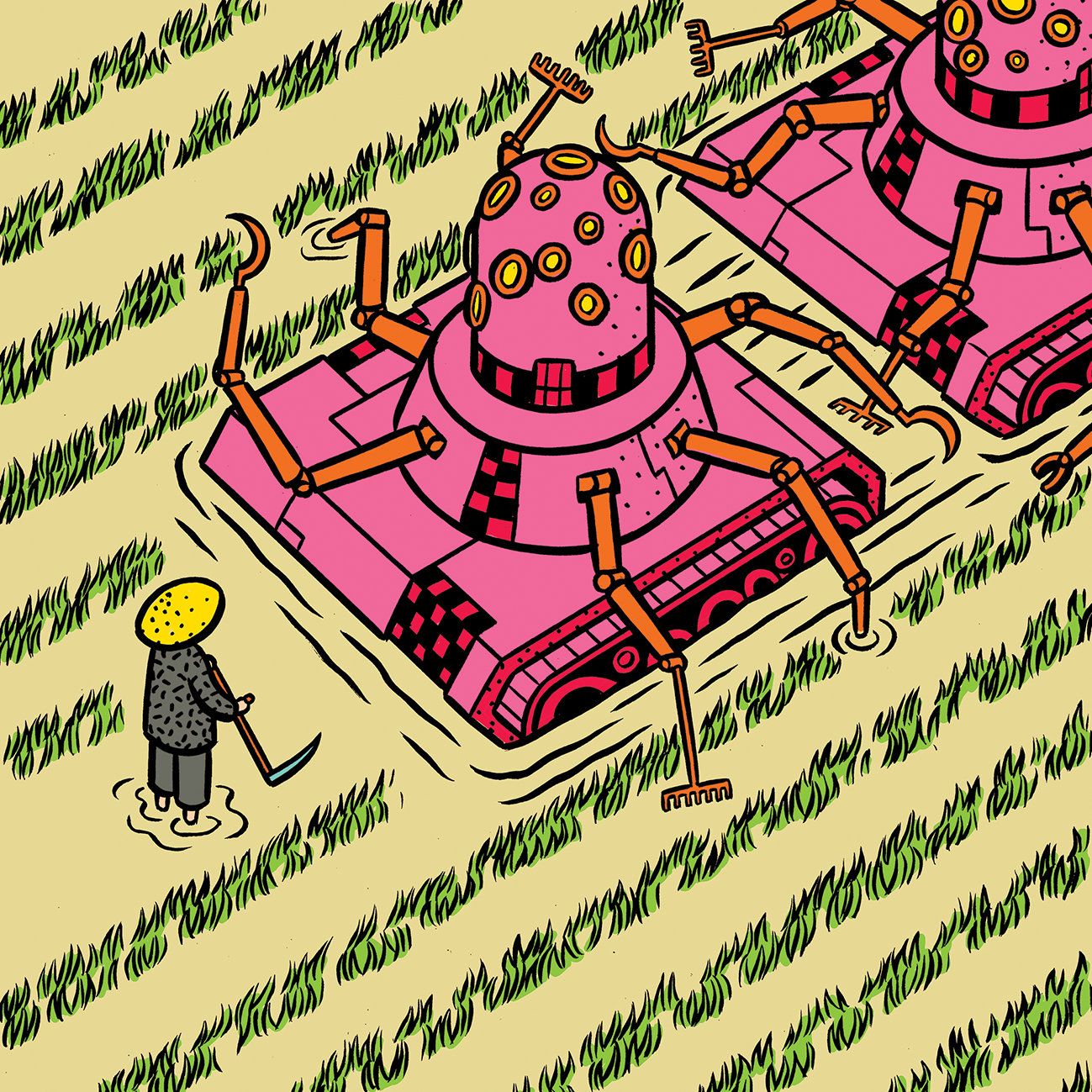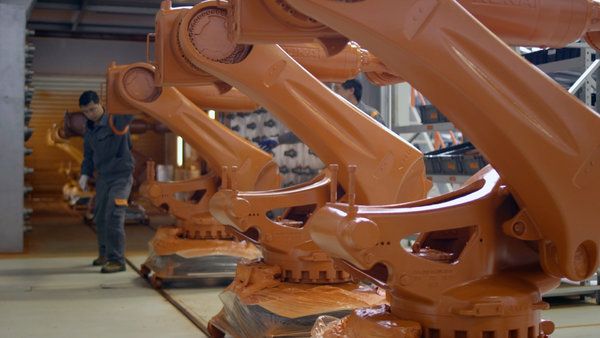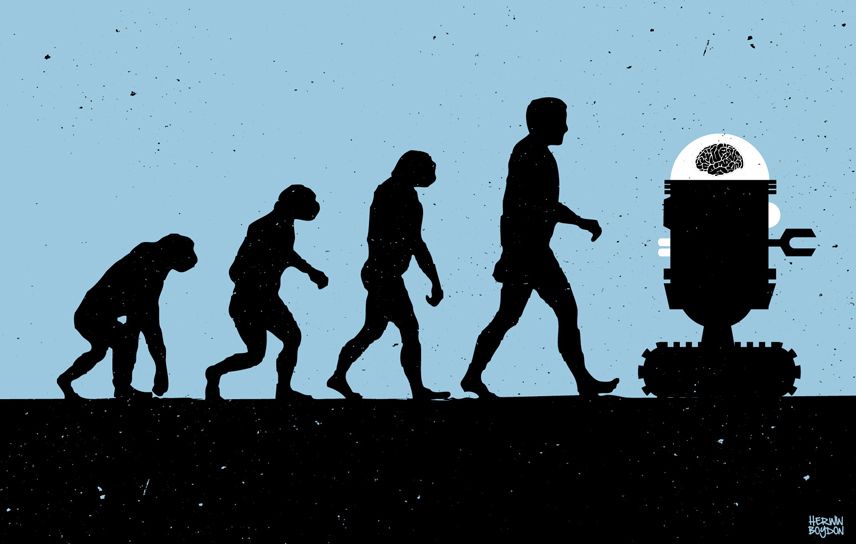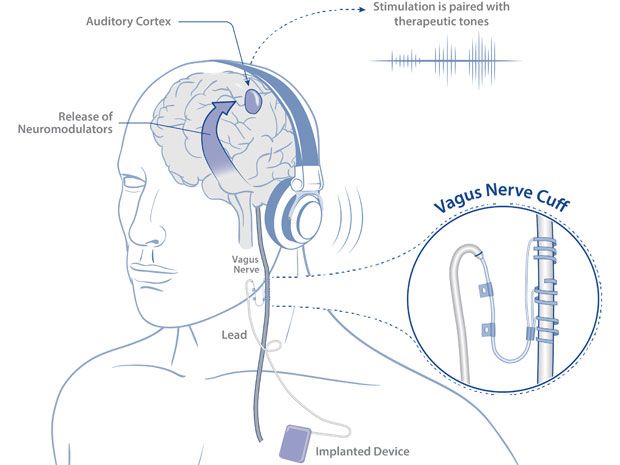A balanced article on transhumanism and the future in a trendy Hong Kong & Chinese men’s lifestyle magazine. Article in English:
Page 11726
Jun 14, 2015
China’s Troubling Robot Revolution — Martin Ford | The New York Times
Posted by Seb in category: robotics/AI

“Automation has already had a substantial impact on Chinese factory employment: Between 1995 and 2002 about 16 million factory jobs disappeared, roughly 15 percent of total Chinese manufacturing employment. This trend is poised to accelerate.” Read more
Jun 13, 2015
Meet the people out to stop humanity from destroying itself
Posted by Jeremy Lichtman in category: existential risks
More research has been done on dung beetles and Star Trek than human extinction. These people want to change that.
Jun 13, 2015
Implant Fights Stroke, Tinnitus
Posted by Dan Kummer in categories: biotech/medical, neuroscience
Microtransponder’s vagus nerve stimulator uses precisely-timed jolts to help stroke victims relearn movements more quickly
Jun 13, 2015
Longevity Cookbook Indiegogo Campaign Is the Most Effective Step You Can Take towards Your Longevity
Posted by Maria Konovalenko in categories: genetics, life extension
Something amazing has happened! We have launched our Longevity Cookbook Indiegogo Campaign.
Aging steals away your most valuable resource: time. The Longevity Cookbook is a strategy guide to help you get more time to experience the joy from everything that you like in life. Take yourself on a journey starting with nutrients and exercise regimes that goes on to exploring the usage of genetically modified symbiotic organisms and using gene therapy to boost your own longevity.
Jun 13, 2015
Genetically Modifying Mosquitoes to Eliminate Disease
Posted by Bryan Gatton in categories: biotech/medical, genetics
A remarkable scheme to alter the pest’s DNA could change the disease-carrying species for the better — or wipe them off the Earth.

Latest DARPA robotics competition shows how we still have some work to do on independently mobile robots.
Jun 13, 2015
A Primer on Computing’s Exponential Growth and Where Tech Is Headed [Video] — By David J. Hill Wired
Posted by Seb in categories: futurism, singularity
This presentation is peppered with charts and data from Ray Kurzweil, whose 2005 book The Singularity Is Near mapped out how progress in technology has been accelerating since the beginning, and in recent times, has resulted in computers that will soon rival the processing ability of the human mind.
Recently, Kurzweil announced that the sequel, The Singularity Is Nearer, is scheduled for release around early 2017. Read more
We are MX3D, a company that researches and develops groundbreaking robotic 3D print technology. Our robots print sustainable materials such as metals and synthetics in virtually any size or shape. Our engineers, craftsmen and software experts bring together digital technology, robotics and traditional industrial production.
Jun 12, 2015
New Research Says Robots Are Unlikely to Eat Our Jobs — Steve Lohr | NY Times
Posted by Seb in categories: employment, robotics/AI

“The McKinsey study analyzes and forecasts the potential impact of so-called digital talent platforms. The report looks at three types of such platforms: job-finding and employee-seeking websites (such as Monster.com and LinkedIn); marketplaces for services (Uber and Upwork, for example); and data-driven talent discovery tools (like Evolv and Knack). By 2025, McKinsey estimates, these digital talent platforms could add $2.7 trillion a year to global gross domestic product, which would be the equivalent of adding another Britain to the world economy. And the digital tools, the report states, could benefit as many as 540 million people in various ways, including better matches of their skills with jobs, higher wages and shorter stints of unemployment.” Read more














